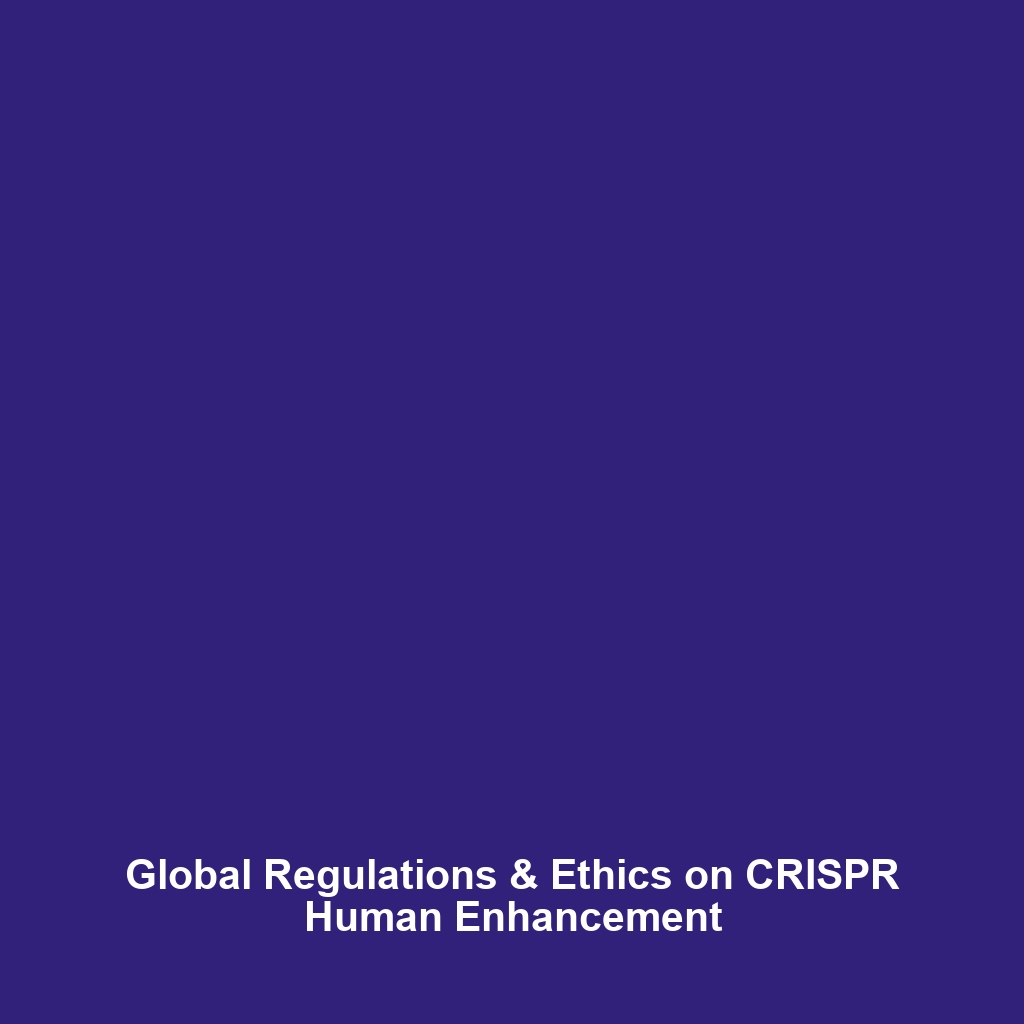International Regulations and Ethical Frameworks to Address Human Enhancement in CRISPR Gene Editing
Introduction
As advancements in CRISPR gene editing technology revolutionize the potential for human enhancement, establishing international regulations and ethical frameworks has become increasingly significant. These guidelines aim to navigate the moral complexities associated with editing the human genome and ensure equitable practices across the globe. This article delves into the importance of creating robust frameworks and regulations that address not only the scientific aspects of CRISPR technology but also the ethical implications of its application in enhancing human abilities.
Key Concepts
Understanding the essential concepts surrounding international regulations and ethical frameworks is vital for comprehending their role in CRISPR gene editing. Key principles include:
- Informed Consent: Ensuring individuals are fully aware of the implications of gene editing before participation.
- Equity: Addressing access to CRISPR technologies for diverse populations to prevent societal disparities.
- Transparency: Promoting open collaboration and sharing of research findings to foster trust.
- Accountability: Establishing liability structures to address potential misuse of gene editing technologies.
Applications and Real-World Uses
There are various real-world applications of international regulations and ethical frameworks concerning human enhancement through CRISPR gene editing. Some notable examples include:
- Therapeutic Enhancements: Regulations guiding the ethical use of CRISPR for gene therapy to treat genetic disorders.
- Agricultural Improvements: Ethical practices in using CRISPR to develop disease-resistant crops while considering ecological impacts.
- Performance Enhancement: Debates surrounding the ethical implications of using gene editing in sports and other competitive fields.
Current Challenges
Despite the potential benefits, numerous challenges exist in the realm of international regulations and ethical frameworks related to human enhancement:
- Global Disparities: Variations in regulatory environments across countries hinder unified standards.
- Technological Misuse: Risks of CRISPR being used for non-therapeutic enhancements, raising ethical concerns.
- Public Perception: Misinformation and fear surrounding gene editing lead to resistance against its application.
- Regulatory Enforcement: Difficulties in monitoring compliance and enforcement of established regulations.
Future Research and Innovations
As the field of CRISPR gene editing evolves, several promising avenues for future research and innovations are emerging:
- AI and CRISPR Integration: Utilizing artificial intelligence to enhance the precision and effectiveness of gene editing.
- Global Collaborative Frameworks: Development of international consortia to harmonize regulations and share ethical practices.
- Public Engagement Initiatives: Programs aimed at educating the public to foster informed discussions about gene editing.
Conclusion
The establishment of international regulations and ethical frameworks aimed at addressing human enhancement is crucial for the responsible development of CRISPR gene editing technologies. As society navigates the complexities of gene manipulation, it is imperative to foster an inclusive dialogue that respects ethical considerations while embracing scientific advancements. For further insights, consider exploring our articles on therapeutic applications of CRISPR and ethical considerations in genetic research.

Leave a Reply